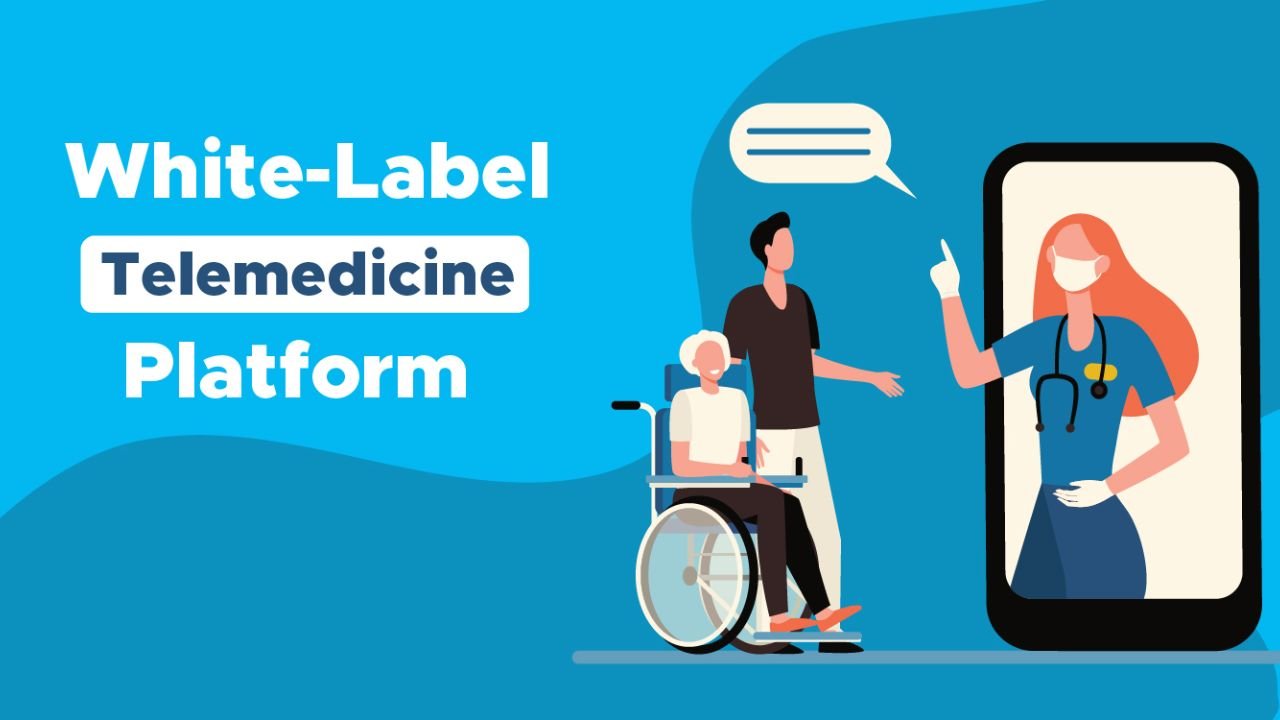1. Introduction to White Label Telemedicine
In today’s fast-evolving healthcare landscape, white label telemedicine solutions are becoming increasingly popular. As more patients seek convenient, virtual care options, healthcare providers are looking for ways to quickly adapt without spending years developing custom platforms. This is where white label telemedicine steps in — offering ready-to-use, customizable solutions that can be branded as your own.
But what exactly is white label telemedicine? Let’s dive deeper.
2. How White Label Telemedicine Solutions Work
White label telemedicine refers to pre-built telehealth software developed by third-party vendors. Healthcare organizations can purchase the software and rebrand it with their own logo, colors, and identity — without needing to build technology from scratch.
Here’s how it typically works:
| Step | Description |
| Choose a Provider | Select a white label telemedicine vendor based on your needs and budget. |
| Customize Branding | Add your company logo, theme colors, and custom workflows. |
| Launch the Platform | Deploy the solution under your own brand name for patient use. |
| Scale & Update | Continuously update and scale features as needed without major technical work. |
This model allows for a faster, cost-effective, and lower-risk entry into the telemedicine market.
3. Key Features to Look for in a White Label Telemedicine Platform
Not all telemedicine solutions are created equal. When choosing a platform, prioritize features that ensure a seamless experience for both patients and providers.
Essential features include:
- Secure Video Conferencing (HIPAA-compliant)
- Multi-specialty Support (family medicine, dermatology, mental health, etc.)
- EHR Integration (Electronic Health Records)
- Payment Processing (easy billing options)
- Mobile Compatibility (iOS and Android apps)
- Scheduling and Reminders
- Patient Portals with medical histories and test results
Pro Tip: Always prioritize security and privacy features to protect sensitive patient data.
4. Benefits of Using White Label Telemedicine for Healthcare Providers
Adopting white label telemedicine brings numerous advantages:
✔️ Rapid Deployment
Launching a branded telehealth service can take just weeks, compared to the months or years required to develop a custom platform.
✔️ Cost Efficiency
Building a telemedicine platform from scratch involves high development and maintenance costs. White label options drastically cut expenses.
✔️ Focus on Core Services
With the tech part handled, healthcare providers can focus on patient care instead of software development.
✔️ Scalability
Most white label solutions are built to handle growth, meaning you can easily expand services or add new specialties over time.
5. Customization Options: Branding Your Telemedicine Service
One of the biggest appeals of white label telemedicine is the extensive customization available. You can modify:
- Logos and Icons: Replace the platform’s default images with your own.
- Color Schemes: Match the platform colors to your brand identity.
- Landing Pages and Portals: Customize the design and content.
- Notification Templates: Personalize appointment confirmations, reminders, and emails.
A fully branded telemedicine service builds trust and increases brand loyalty among patients.
6. Must-Have Integrations for a White Label Telemedicine Platform
Integrations are key to providing a smooth, connected experience. Look for platforms that offer:
| Integration Type | Why It Matters |
| EHR/EMR Integration | Allows seamless sharing of patient records and history. |
| Billing and Payment Gateways | Facilitates easy payments and insurance claims. |
| Pharmacy Networks | Enables direct e-prescriptions to local pharmacies. |
| Laboratory Integration | For ordering and reviewing lab tests within the same platform. |
| Analytics Tools | To track patient engagement, appointment rates, and platform performance. |
Without these integrations, your telemedicine platform could feel clunky and disconnected — frustrating both doctors and patients.
7. White Label Telemedicine vs. Building a Platform From Scratch
Wondering whether to build your own telemedicine app instead of using a white label solution? Here’s a quick comparison:
| Aspect | White Label Telemedicine | Building From Scratch |
| Time to Market | Weeks | 12-24 months |
| Development Costs | Low | High |
| Maintenance | Handled by vendor | In-house team needed |
| Customization Flexibility | Medium | Full control |
| Scalability | Easy | Needs infrastructure planning |
Unless you have a very unique, complex use case, a white label solution is usually the smarter move.
8. Top Use Cases and Industries Benefiting from White Label Telemedicine
While telemedicine was initially focused on primary care, today many industries are leveraging white label platforms:
- Private Clinics offering general consultations.
- Mental Health Practices for therapy and psychiatric services.
- Dermatologists analyzing skin conditions via high-resolution video.
- Chiropractors and Physical Therapists for follow-up sessions.
- Insurance Companies offering telehealth as a policy perk.
- Corporate Wellness Programs providing employee healthcare.
Fun Fact: Studies show telepsychiatry has a 95% patient satisfaction rate!
9. How to Choose the Right White Label Telemedicine Partner
Choosing the right vendor is critical to your success. Here’s a simple checklist:
✔️ Security Compliance: Ensure HIPAA, GDPR, and relevant healthcare regulations are met.
✔️ Scalability: Make sure the platform can grow with your business.
✔️ Support Services: Look for 24/7 tech support and regular platform updates.
✔️ Customization Depth: Some providers allow deep customization, others just basic branding.
✔️ Transparent Pricing: Be wary of hidden fees for maintenance, storage, or additional users.
Take your time evaluating options and always request a demo before committing.
10. Future Trends in White Label Telemedicine
Telemedicine isn’t just a temporary trend — it’s here to stay. Future developments are likely to include:
- AI-Powered Diagnostics: Real-time symptom checking and triage.
- Wearable Integration: Devices like smartwatches feeding patient vitals into the platform.
- Augmented Reality (AR): Assisting in remote physical therapy and rehab.
- More Specialized Telehealth Services: Expanding into fields like oncology, surgery pre-consultations, and more.
- Greater Insurance Integration: Seamless claims processing through telemedicine platforms.
The global telemedicine market is projected to reach $504.24 billion by 2030 — and white label solutions will power much of that growth!
Conclusion
White label telemedicine offers a smart, scalable, and efficient way for healthcare providers to meet the growing demand for virtual care. Whether you’re a small clinic, a hospital group, or a private practice, leveraging a white label solution lets you focus on what matters most: delivering excellent patient care — while saving time and money.
Ready to launch your own telemedicine service? Choosing the right white label partner is your first step toward success.



